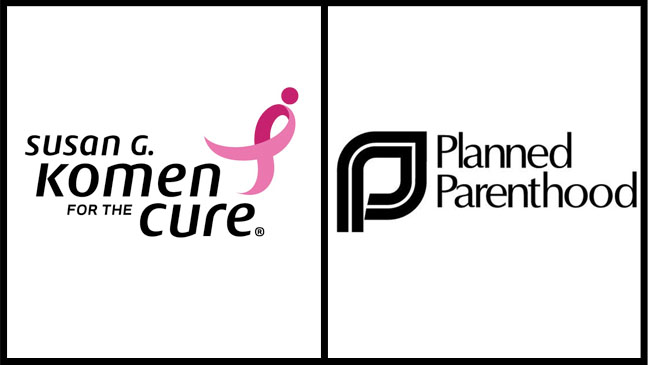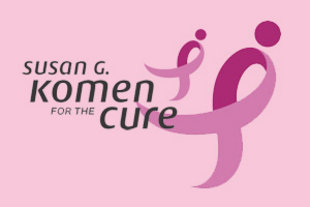Susan G. Komen’s Bad Week In Crisis Communications
As you’ve surely heard by now, the Susan G. Komen Foundation ensnared itself in a major corporate crisis this week after its decision to discontinue grants to Planned Parenthood, a women’s health provider that provides abortion services.
The Foundation (kind of) reversed its decision this morning after suffering overwhelmingly negative coverage – but it even got its reversal wrong.
On Tuesday, Komen appeared to have been caught flat-footed when news broke of their decision to defund Planned Parenthood. Their inability to respond swiftly is particularly surprising given that they made their decision back in December. But in a New York Times story, Komen board member John Raffaelli offered some insight into what went wrong:
“Avoiding this kind of controversy was the very reason Komen chose a quiet ending to its relationship with Planned Parenthood.”
A “quiet” ending? Seriously, Komen? You couldn’t have anticipated that ending your relationship with Planned Parenthood, an organization that evokes incredibly strong emotions (both pro and con), might generate some controversy?
Komen’s decision to bury their heads in the sand instead of breaking the news themselves is one of the biggest acts of reputational recklessness I’ve seen. In fact, Komen’s initial crisis communications response violated all seven of the seven truths of a crisis.
Komen shouldn’t have waited for Planned Parenthood to break the news. They should have broken it themselves and helped to shape the media narrative. My strong suspicion is that their announcement still would have created a major controversy – but it wouldn’t have been this bad.
They could have pointed out, for example, that Komen gave Planned Parenthood just $700,000 of the $93 million it gave out in grants last year. They could have touted the vital work that their other $92.3 million dollars did last year. They could have expressed their deep commitment to continuing to help women who have benefitted from Planned Parenthood’s services and offered them some ideas about how to receive the care they so vitally need.
TODAY’S REVERSAL
This morning, Komen released a statement reversing its initial decision. It’s a step in the right direction, but the statement itself violates at least three rules of crisis communications.
First, their statement is ambiguous. It reads:
“We will continue to fund existing grants, including those of Planned Parenthood, and preserve their eligibility to apply for future grants.”
What does that mean? Komen seems to be preserving its right to cut off Planned Parenthood’s funding again next year. That’s a non-committal statement, at best, and looks like a temporary salve.
Second, Komen CEO Nancy G. Brinker (sister of the late Susan G. Komen) wrote:
“We believe it is time for everyone involved to pause, slow down and reflect on how grants can most effectively and directly be administered without controversies that hurt the cause of women.”
Sorry, Ms. Brinker, but you’re hardly in a position to lecture your supporters right now. Instead of telling your supporters that they should “slow down,” you should only express your own commitment to getting this right.
Third, her awkward phrasing makes it look like Komen just wants to make this episode go away:
“We urge everyone who has participated in this conversation across the country over the last few days to help us move past this issue.”
Your supporters don’t want to “move past” this issue, Ms. Brinker. They want to be heard, reassured, communicated with, and respected.

CONCLUSION
Conservative groups are already denouncing the Komen Foundation’s decision to fund Planned Parenthood. Komen’s statement said that they “do not want our mission marred or affected by politics,” but it’s far too late for that. Their decision to defund Planned Parenthood made that impossible.
The Komen Foundation will now be seen by large swaths of the American public as either anti-abortion or pro-choice. For most of its history, Komen didn’t have to choose sides in that debate. But because of Komen’s lousy management decisions, the American people will now make that decision for them.
Have the best of the blog delivered to your inbox twice per month! Enter your name in the box below to join our mailing list.




Well, you’re writing as if Komen’s decision was made without the political motivations being ascribed. Google will quickly make it apparent that the decision is fully in line with Brinker’s political stance on the issue of Planned Parenthood and abortion.
I don’t believe there was any intention or possibility of Koemen handling this matter in the way you suggest.
Hi Carolyn,
You’re right that political motives could have been at play. Ms. Brinker served under George W. Bush, and Komen’s new senior vice president for public policy, Karen Handel, ran as an anti-abortion Republican gubernatorial candidate in Georgia.
But political motivations are present in many organizations, and most of them handle potential (and actual) crises better than Komen. Although political leanings may have led to the original decision to defund Planned Parenthood, I don’t see any evidence that they accounted for their inept crisis response.
Thank you for reading and commenting,
Brad
The initial mistake was funding a polarizing and blatantly political organization – and, from a crisis-management basis, it doesn’t matter which side of a political debate the polarizing group being funded is on. No non-political Non-Profit organization should ever contribute to polarizing political groups – that automatically causes others to perceive that your group supports the politically-activist group.
The second mistake (if you want to avoid controversy) was de-fundning the group. That was sure to bring attention to both the initial decision to fund, and the latter decision to de-fund.
The third mistake was (when they realized that funding the group was a mistake) was not managing the de-funding (as you suggested). This ensured that the media would “get it wrong” and that the public would be outraged.
The fourth mistake was not de-funding for cause. In this case, since Planned Parenthood doesn’t really provide cancer screening (lots of media and advocacy groups have called PP asking for mammograms and been referred elsewhere, because they just don’t do cancer screenings), they could have been de-funded for cause, rather than because of the lame reason that was cited.
The final and biggest mistake was to change their position when the pot began to boil. By de-funding Planned Parenthood, Komen annoyed the group’s partisan supporters; but by changing positions, they also offended PP’s opponents, without really satisfying the PP supporters. Basically, they not only extended the story through several news cycles, but they also pissed off advocates on both sides of the abortion issue … and Komen has nothing to do with abortions and shouldn’t even be in the middle of the debate.
What’s the aftershock from this?
First, lots of pro-choice folks donated to Komen when the Planned Parenthood de-funding was announced. Now, they feel betrayed and at the very least will expect their money back, and at worse they will never give to Komen again.
Next, lots of pro-abortion folks decided to stop supporting Komen when Planned Parenthood was initially de-funded. With the tepid decision to re-embrace Planned Parenthood, it’s unlikely that many of those people will change their minds.
Finally, Komen has been sullied by its insertion into the highly-polarized debate (which became almost inevitable from the moment they first funded Planned Parenthood). It will take years to get out from under that image-slap.
That’s a classic lose-lose situation.
One final note – over the past five years, I have encouraged many clients to corporately support Komen, because it was squeaky-clean and served an unimpeachable cause. Those clients have contributed at least $500k to Komen. Without mentioning my own personal position on the abortion debate (which is irrelevant), I will not be directing clients toward Koman any time in the foreseeable future – there are too many non-political charities out there which need support, and I don’t want my clients to be tarnished by a politically-divisive debate.
I can only conclude that I’m not the only person to draw this conclusion.
Ned in Vegas
Ned – very thoughtful response. It speaks to values – the key to an organization’s ability to not only survive but thrive. Values are drining more and more of our decisions as we search for the “truth”, authenticity and honesty. No surprise to me to see that (in the Edelman Trust Survey), trust in CEOs was the lowest in years. That mis-trust speaks to an organization’s values (read behaviour.)
What the Susan Komen debacle (for want of a better word) shows more trhan anything else that social media is a powerhouse. Ignore it at your peril. “We, the people” are in charge!
[…] Komen did start talking, statements were often ambiguous (see Mr. Media Training’s Susan G. Komen’s Bad Week in Crisis Communications […]
[…] from the start—from trying to quietly end the relationship with Planned Parenthood and not getting ahead of the announcement itself (a no-no in crisis communications) to the shifting explanations for its decision. As a result, […]
[…] “Susan G. Komen’s Bad Week in Crisis Communications” by Brad Phillips […]
Your phrase “reputational recklessness” really resonated for me. I googled it and there are no entries for the two words together.
Copyright the sucker Brad, and spin out some others along the lines of reputational stewardship, neglect etc.